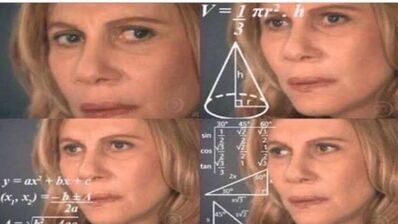- 16,927
- 4,844
Refer to the title. For context, this originally came from this previous DBH thread where this was mentioned and then again in this Archie Sonic upgrade thread . To be honestly blunt, I have no idea how in the hell "being above baseline 2-A" works, especially if its infinitely above baseline. And when I say this, im not talking about simple scaling chains that determines a character's superiority over another one. Im talking about feats of destroying a [insert number here] number of infinite multiverses to make the AP be based on numbers.
At the end of the day, when not going into business about higher-dimensional planes, infinite is infinite. Anything divided by infinite....is still infinite. So when we have characters who are claimed to be able to destroy 2, 3, or multiple infinite multiverse's, all of those said multiverse's are infinite and when dividing infinite by those numbers, it still remains to be infinite. So why is it that destroying multiple infinite multiverse's is somehow more impressive than destroying 1? Why aren't those "multiple infinite multiverses" just apart of one single infinite multiverse in the end?
I'd like this to be discussed please as I am not the only one who shares the same issues when looking at this.
At the end of the day, when not going into business about higher-dimensional planes, infinite is infinite. Anything divided by infinite....is still infinite. So when we have characters who are claimed to be able to destroy 2, 3, or multiple infinite multiverse's, all of those said multiverse's are infinite and when dividing infinite by those numbers, it still remains to be infinite. So why is it that destroying multiple infinite multiverse's is somehow more impressive than destroying 1? Why aren't those "multiple infinite multiverses" just apart of one single infinite multiverse in the end?
I'd like this to be discussed please as I am not the only one who shares the same issues when looking at this.
